INTRODUCTION ABOUT CAN THO UNIVERSITY
- General
- Mission, Vision and Core Values
- Development Strategy
- Quality Policy Statement
- Educational Objective
- Historical Milestone
- Activities
» Video about Can Tho University
Vision
Can Tho University is the education and research hub for exchanging, creating, and enhancing knowledge, culture, science, and technology, making a positive impact on sustainable social development.
Mission
To produce highly capable graduates based on a liberal education environment, conduct advanced research and technology transfers on contemporary themes, and contribute to social prosperity development
Core Values
Consensus - Devotion - Quality – Innovation
Quality Policy Statement
Can Tho University is committed to the full establishment and implementation of an efficient, creative, innovative, professional, and responsible governance system. All activities of the University will be systematically and effectively governed through computerized procedures, applying innovative approaches and undergoing regular monitoring and assessment.
Educational Objective
• Established in 1966 with only four faculties
• Restructured in 1994 and 1995 increasing the scope of education with the founding of larger schools and colleges
• Nationally selected to be one of the 14 key universities in Vietnam (out of 400 higher education institutions across the nation)
• The largest and only multi-disciplinary university in the MD till 2000, serving the needs of nearly 20 million inhabitants in the region.
1. CAN THO INSTITUTE (1966 - 1975)
Founded on March 31, 1966, Can Tho Institute had 4 faculties: Sciences, Law and Social Sciences, Letters, and Education. Previously, the Faculty of Education was training undergraduate (bachelor degree) students, the College of Agriculture was training engineers, and the Center of Foreign Languages was offering foreign language courses.
The facilities of Can Tho Institute were located in four places:
- The President’s Building (No 5, Hoa Binh Avenue): was the administration center of the Institute.
- Campus I (30 – 4 Street): with an area of over 5 hectares, was used as the accommodation for staff members, the dormitory for female students, a model public school for teacher training, the College of Agriculture, and administration buildings for the faculties.
- Campus II: (3 – 2 Street): with the area of 87 hectares, contained the main classroom buildings of the Institute.
- Campus III: (No 1, Ly Tu Trong Street): with the area of 0,65 hectares, was the first training area consisting of the Faculty of Sciences and the library.
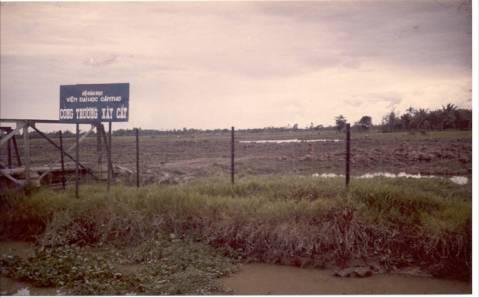
Campus II, Can Tho University (1966)
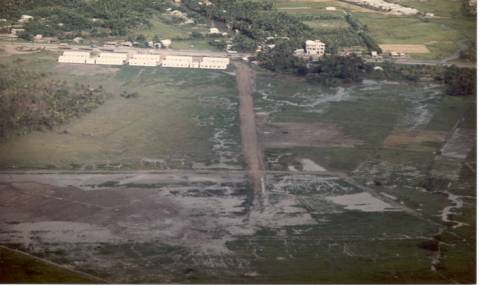
The first rows of classrooms in Campus II (1973)
2. CTU AFTER 1975
Can Tho Institute was changed to Can Tho University. At that time, the training program and existing students of the old Faculty of Education and College of Agriculture continued to be trained within the Faculties of Science Education and Agriculture at Can Tho University. Students of other faculties were transferred to Ho Chi Minh City or to other existing programs at the University.
After 1975, the Faculty of Education was separated into the Faculties of Science Education and Social Science-Humanities Education, training upper secondary teachers of mathematics, physics, chemistry, biology, literature, history, geography, and foreign languages. After that, they were expanded to 5 separate faculties: mathematics - physics (1980), chemistry - biology (1980), history - geography (1982), letters (1983) and foreign languages (1983).
The College of Agriculture was changed to the Faculty of Agriculture, with 2 training specializations, agronomy and animal husbandry. In 1979, the Faculty of Agriculture was expanded to 7 faculties: agronomy (1977), animal husbandry – veterinary medicine (1978), water management and land improvement (1978), agricultural engineering (1978), food processing and agricultural product preservation (1978), agricultural economics (1979), and fisheries (1979).
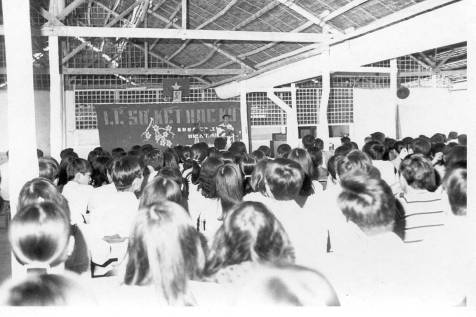
Almost all the classrooms were made of bamboo and thatch leaves (1976).
In 1978, the Faculty of In-service Training was established. It was responsible for managing and developing programs to improve and train upper secondary teachers and others in applied engineering to help control the production of the provinces in the MDMekong Delta. The training period was 5 years. Since 1981, to meet the increasing need for in-service training in the MDMekong Delta, the University has developed links with the provinces and opened regional Centers for In-service Training and Improvement. These are now called Centers for Continuing Education: Tien Giang - Long An - Ben Tre, Vinh Long - Đong Thap, Can Tho, An Giang, Soc Trang, Tra Vinh, Kien Giang and Minh Hai.
In 1987, to meet the requirement for developing a market-oriented economy in line with the renewal policy of the Communist Party and the Government, the Faculty of Agricultural Economics linked itself with the Ho Chi Ming Economic University and opened 4 more undergraduate specializations: Finance - Credit, General Accounting, Foreign Trade and Business Administration. Similarly, in 1988, the Faculty of Water Management expanded and added 2 undergraduate specializations, hydraulic structure and rural construction, to meet the need for constructing houses and bridges in the rural areas of the MDMekong Delta.
In 1990, the faculty of mathematics - physics opened a college-training program with 2 specializations, electronics and informatics. It did so by upgrading its existing electrical workshop to the Center of Electronics - Informatics.
In addition to the establishment and development of the faculties, Can Tho University also established Centers of Scientific Research integrating 3 missions, Training – Scientific Research - Production. From 1985 to 1992, 7 centers were founded, including the Centers of Biotechnology Research and Development (1985), Renewed Energy (1987), Mekong Delta Farming Systems Research and Development (1988), Electronics – Informatics (1990), Shrimp - Artemia Research and Development (1991), Foreign Languages (1991), Science and Technology Information (1992).
In April 2003, the School of Medicine – Dentistry – Pharmacy was separated to form the University of Medicine – Pharmacy under the management of the Ministry of Health.
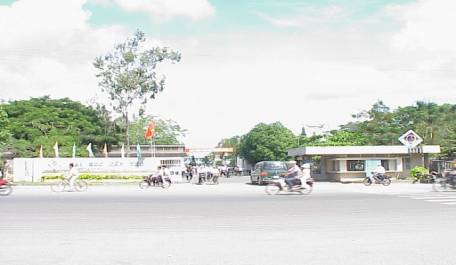
CTU Main Entrance
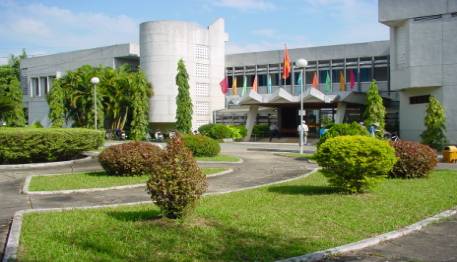
Rectorate Building
During its formation and development processes, CTU always receives support from the Government and the Ministry of Education and Training.
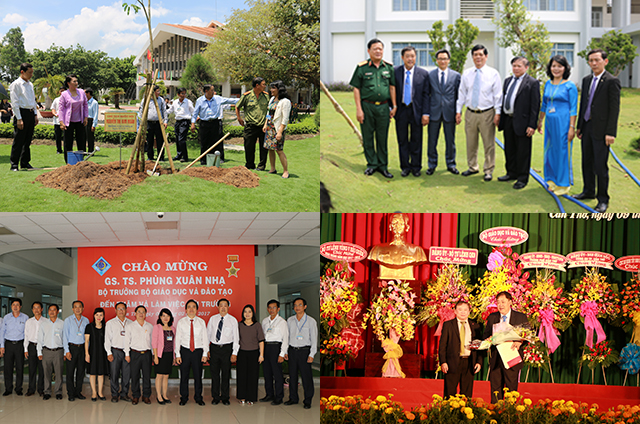
Governmental delegations and the Minister of Education and Training visit the University.
The present organizational structure of Can Tho University
The duration of undergraduate programs at CTU is from 4 to 5. The study program consists of the first three semesters for general courses of all majors and basic courses for disciplines. The remaining semesters are for fundamental and specialized knowledge of the majors.


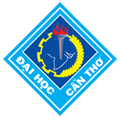
 Undergraduate
Undergraduate 